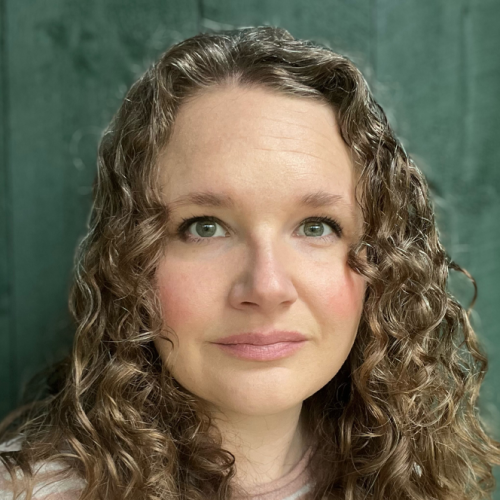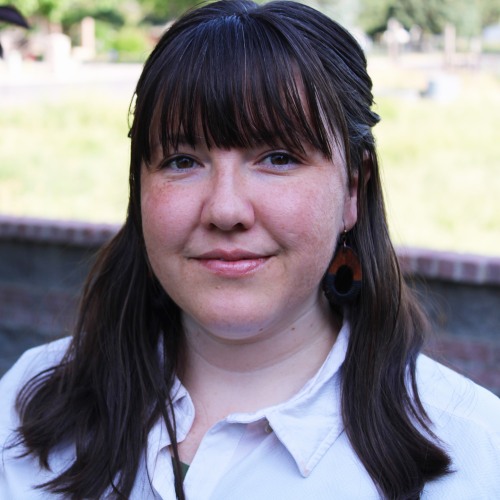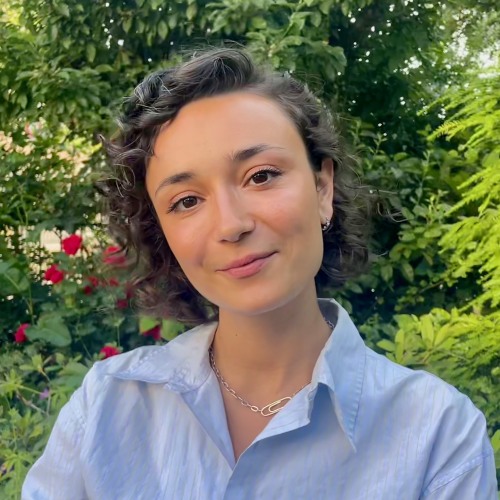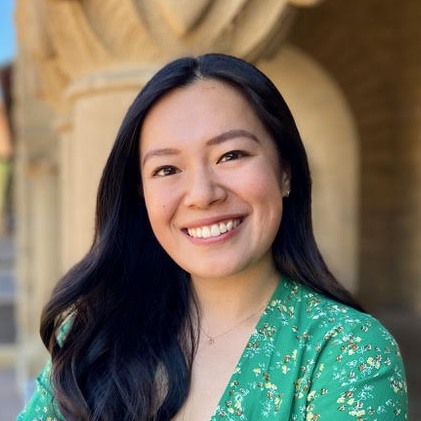Postdoctoral Research Associates
Postdoctoral Research Associates
2024–26
-

Namrata Kanchan
2024–26 International Humanities Postdoctoral Research Associate in the Department of Comparative Literature and the Cogut Institute for the HumanitiesNamrata B. Kanchan is International Humanities Postdoctoral Research Associate in the Department of Comparative Literature and the Cogut Institute for the Humanities. She obtained her doctoral degree from the Department of Asian Studies at the University of Texas, Austin in 2023. Her dissertation, “From Gilded Pens to Mortal Ears,” examines the genesis of early modern Dakani literature in western India’s Deccan sultanate courts through the study of the region’s manuscript and material culture. Her research interests include early modern literary, social, and manuscript histories; transoceanic networks; translation culture; and paleographical and codicological studies.
-

Tarisa Little
2024–26 Mellon Postdoctoral Research Associate in the Departments of History, Native American and Indigenous Studies Initiative, and the Cogut Institute for the HumanitiesTarisa Little (she/her) is Mellon Postdoctoral Research Associate in the Department of History and the Cogut Institute for the Humanities. She is a historian of Indigenous education, Settler colonialism, and historical memory. As a Settler scholar, she is committed to ethical, community-centered research that foregrounds Indigenous sovereignty and knowledge systems. Her work spans the disciplines of history, Indigenous studies, and education, with a focus on how Indigenous nations have used schooling as a tool for cultural survival and self-determination. Her current book project, “Scholars of Aataentsic: Wyandot Education Strategies,” traces the Wyandot Confederacy’s use of schooling from the 17th to the early 20th centuries. Drawing on extensive community archival and family history research conducted in collaboration with the Wyandot of Anderdon Nation, the book challenges dominant narratives of assimilation by highlighting Indigenous-led models of education and intellectual continuity. Little has published in American Indian Quarterly, Women and Social Movements in Modern Empires, and Active History, and is co-editor of the forthcoming volume tentatively titled Reclaiming the Chalkboard: Indigenous Education Reimagined. Her current research includes collaborative work on Wyandot witchcraft histories. Across all her work, she centers relational accountability, methodological integrity, and the transformative power of Indigenous education.
2025–27
-

Brendan Fleig-Goldstein
2025–27 Mellon Postdoctoral Research Associate in the Departments of Philosophy and the Cogut Institute for the HumanitiesBrendan Fleig-Goldstein is Mellon Postdoctoral Research Associate in the Department of Philosophy and at the Cogut Institute for the Humanities. His research focuses on the philosophical foundations of cognitive science and artificial intelligence, with particular attention to normativity, agency, and resource-bounded cognition. His work advances a framework of resource rationality to examine how well cognitive systems make use of limited resources, how cognitive limitations shape epistemic norms, and how patterns of irrationality can serve as evidence for cognitive models. His current project, “Normative Commitments and the Foundations of Rational and Moral Agency in Artificial Intelligence,” builds on this account of resource rationality to provide a framework for empirically investigating and engineering normative commitments in AI systems. He holds a Ph.D. in History and Philosophy of Science. Prior to joining Brown University, he served as Director of the Program in Cognitive Science at Columbia University.
-

Catherine Nuckols
2025–27 International Humanities Postdoctoral Research Associate in the Departments of History of Art and Architecture and the Cogut Institute for the HumanitiesCatherine Nuckols is International Humanities Postdoctoral Research Associate in the Department of History of Art and Architecture and at the Cogut Institute for the Humanities. Her research examines the visual nature of ancient Maya hieroglyphic writing and how the study of its non-linguistic features can lead to new insights on visual forms of communication. Her book project, “Full-Figure Glyphs: Iconicity, Figuration, and Tz’ihb in Ancient Maya Inscriptions,” examines a subset of visually complex Maya hieroglyphs, the scribal workshops that created them, and the implications of this highly iconic script for our understanding of ancient Maya perceptions of “writing” and “art.” She received her joint Ph.D. in Art History and Latin American Studies from Tulane University; she also holds an M.A. in Art History from the University of Texas at Austin and a B.A. in Latin American Studies from Brigham Young University. Her research has been supported by the Metropolitan Museum of Art, the National Gallery of Art’s Center for Advanced Study in the Visual Arts, Casa Herrera, the Tinker Foundation, and the Stone Center for Latin American Studies at Tulane University. Her work has been published in Hemisphere: Visual Cultures of the Americas and MEXICON, with upcoming publications in other presses.
-

Lou Silhol-Macher
2025–27 International Humanities Postdoctoral Research Associate in the Departments of German Studies and the Cogut Institute for the HumanitiesLou Silhol-Macher is International Humanities Postdoctoral Research Associate in the Department of German Studies and at the Cogut Institute for the Humanities. Her current project, “Of Goo and Dust: Aesthetic Theories of Formlessness,” theorizes the emergence of an aesthetics of formlessness in German and American film and visual arts from the 1970s to the present day. Engaging current cross-disciplinary conversations about formalism and materialism as renewed methods of inquiry, “Of Goo and Dust” centers minoritarian artworks that reveal form and the formless as political categories. She is also at work on her second book project, “Artificial Images,” which interrogates the current reconfiguration of discourses on images — their ontologies, anthropologies, politics — and the paradigmatic shift heralded by AI. She holds a Ph.D. in German and Film and Media Studies from the University of California, Berkeley, where she was a recipient of the Townsend Center for the Humanities Dissertation Fellowship and was a Norman Jacobson Memorial Teaching Fellow. Her research and writing can be found in Camera Obscura, liquid blackness, and Qui Parle.
-

Adela Zhang
2025–27 Mellon Postdoctoral Research Associate in the Departments of Anthropology and the Cogut Institute for the HumanitiesAdela Zhang is Mellon Postdoctoral Research Associate in the Department of Anthropology and at the Cogut Institute for the Humanities. She is a political and economic anthropologist whose work examines how communities dispossessed by large-scale resource extraction make lives for themselves amidst increasingly degraded environments. Her research traces the social, political, and economic effects of normalizing mining’s environmental and health harms in Peru’s southern Andes, where struggles over land and water are shaped by uncertainty about toxic exposure, shifting conceptions of property, and enduring hierarchies of race. Articles based on this research and other work in Peru have appeared in Environment and Planning D, The Cambridge Journal of Anthropology, and The Journal of Latin American and Caribbean Anthropology. She received her Ph.D. in Anthropology from Stanford University in 2025.